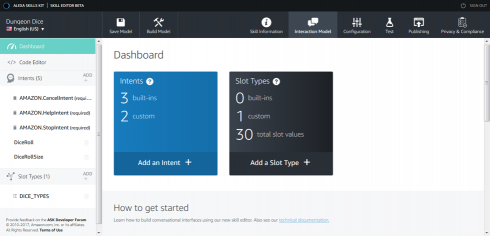
Amazon announced new developer tools to help developers deliver visuals, expanded language support and personalization for the latest lineup of Echo Devices.
The new Alexa Web API for Games introduces new technologies and tools to create voice-controlled games. Also, the new Alexa Presentation Language provides the ability to make visual experiences using drag-and-drop support in the authoring tool, enhanced templating and support for the Alexa design system.
Developers can also apply for a preview of Alexa skills personalization, that enables incorporating Alexa voice profiles to provide a personalized experience without switching between accounts.
The full details of the tools and devices is available here.
TIBCO collaborates with AWS
TIBCO announced an integration with AWS that will bring over 20 TIBCO products to AWS, enabling customers to quickly deploy reference architectures on AWS infrastructure.
“For years, AWS has been virtually synonymous with cloud. By strengthening our collaboration, we’re able to provide customers with the tools to integrate critical assets, gain a uniform view of data, and uncover new business opportunities,” said Matt Quinn, chief operating officer at TIBCO.
Notable integrations include the TIBCO Cloud Integration (TCI) that offers support for TCI on Amazon Elastic Kubernetes Service, TIBCO ActiveMatrix BPM 4.3.0 and TIBCO ComputeDB 1.1.
The full details of the integration are available here.
Melissa now accepts Bitcoin
Melissa, a provider of global identity verification solutions, announced that it now accepts Bitcoin for products and services.
“Bitcoin purchases are faster and easier than paying with a credit card, less expensive and increasingly popular around the world. Furthermore, blockchain technology provides the highest level of transactional transparency and security,” said Ray Melissa, the chief executive officer at Melissa.
Information about Melissa pricing and Bitcoin acceptance is available here.
Syncfusion partners with CData on data visualization
Syncfusion partnered up with CData Software to merge Bold BI, a BI dashboard platform, with CData’s data integration service, Cloud Hub, resulting in a dashboard platform that can connect to dozens of different data sources through an SQL interface.
While Bold BI handles the data visualization by producing SQL queries to collect data, CData Cloud Hub configures the data to behave like a SQL/MySQL and pushes supported operations, such as JOIN, to the data source to take advantage of server-side processing.
“Standardizing data access to cloud applications and non-relational data through universally supported database protocols dramatically simplifies BI integration,” said Eric Madariaga, chief marketing officer at CData Software.






